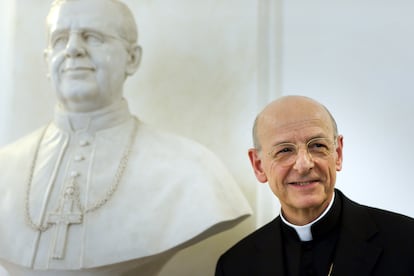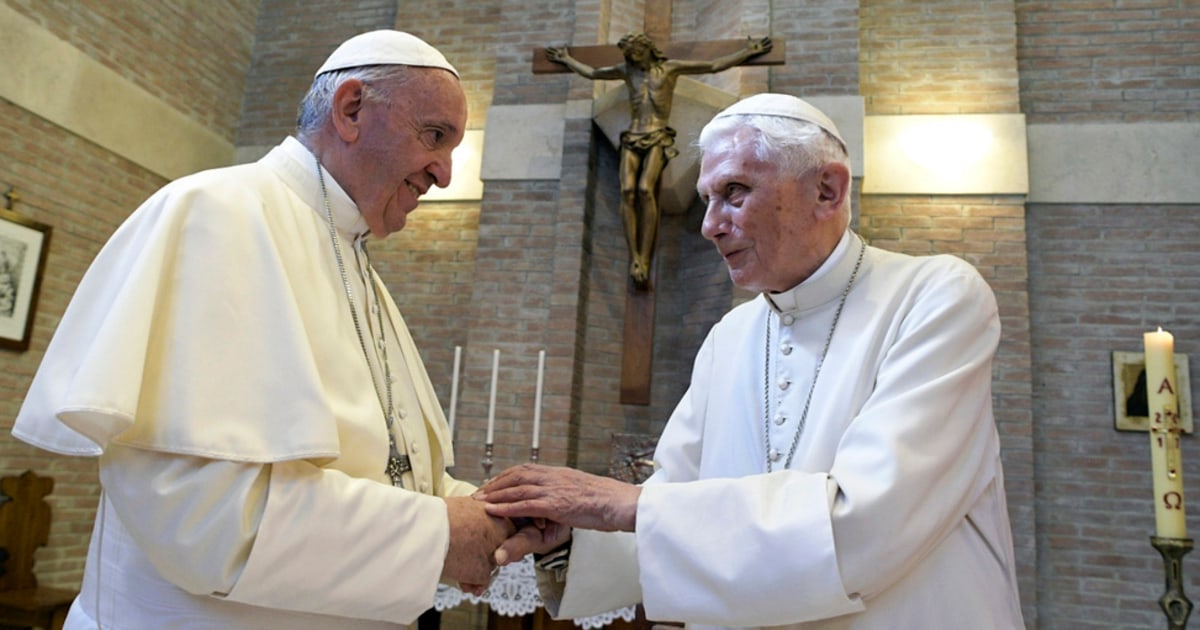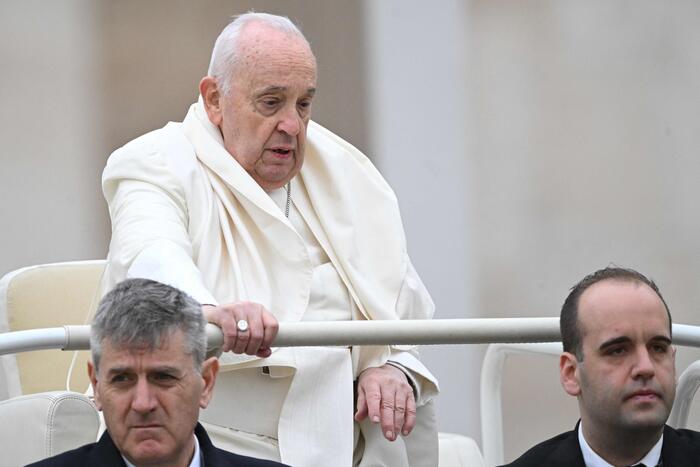Fernando Ocáriz Braña, a Spanish priest at the head of Opus Dei, in a 2017 image at the Vatican. Franco Origlia (Getty Images)
During the pontificates of John Paul II and Benedict XVI, the Catholic Church experienced a long stage of "kidnapping" by Opus Dei, which occupied the highest positions of power in the Roman Curia, in the world episcopate, in Catholic schools, in its majority elite, in universities and theological centers where a pre-conciliar theology is taught, in numerous parishes of the Catholic world with the promotion of Marian devotions and sacramental practice, both of which are often alien to the social reality of people and social groups impoverished.
John Paul II handed over the key to Vatican communication with full powers to Joaquín Navarro Valls, a full member of Opus Dei, who decided the participation or rejection of the media in the press conferences and in the Pope's trips depending on of the affinity or the critical attitude with the papal ideology.
Opus Dei had a special influence on the Congregation for the Doctrine of the Faith during the presidency of Cardinal Ratzinger through the numerous complaints, processed with great speed, of theologians suspected of heterodoxy, subjected to summary proceedings that used to end in expulsion. of the teaching of the theological centers where they taught and in censorship of their books.
It is worth remembering in this regard that Cardinal Ratzinger was appointed doctor
honoris causa
by the University of Navarra of Opus Dei in 1988.
Given his political and theologically conservative ideology, frozen at the time of writing the book
The Way
(1939), he played a fundamental role in the neoconservative and restorationist process of the Catholic Church, in the rejection of the Second Vatican Council and in the return to Christianity. reconcile
Being an organization spread throughout the world, it became a key piece for the expansion of the strategy of John Paul II and Benedict XVI throughout the Church.
Being perched in the highest spheres of economic power from neoliberal approaches, Opus contributed large sums of money to cover the Vatican's economy.
John Paul II rewarded Opus Dei for the excellent services rendered to the Vatican with the recognition of personal prelature, the only one in the Catholic world, with full autonomy, the promotion of his prelate to the rank of bishop, becoming part of the hierarchical structure of the Catholic Church, and the express beatification and canonization of the founder, Escrivá de Balaguer, in 2002, only 27 years after his death.
Last June, Pope Francis signed the Apostolic Letter
Ad Charisma tuendum
by which he dispossesses Opus Dei of the privileges that John Paul II had granted it and carries out far-reaching transformations, which go beyond the organizational and some have described of degradation throughout the rule.
It removes the legal exceptionality in which it found itself —prelature with its own jurisdiction—, places it under the Dicastery for the Clergy and excludes the prelate from the episcopal order, both decisions that exclude the Work from the hierarchical structure of the Catholic Church.
It asks him to adapt the Statutes to the new ecclesiastical status, requires him to present an annual report on the state of Opus Dei and the development of its apostolic work, an annual report on its activities, and considers that the new form of government is based more on the charism of the Work that on episcopal authority.
A full blown rudder!
I ask myself: will Pope Francis achieve the profound and necessary reform of the Opus formulated in the Apostolic Letter or will it be neutralized by the Work itself and it will remain a simple facade plaster?
I can only express my skepticism in this regard given the presence of Opus in most of the Catholic world, having numerous episcopates under its power, counting on the overwhelming influence in the parish sphere and with the control of a wide network of colleges, universities and theological centers.
Juan José Tamayo
is a liberation theologian.
His latest book is
Compassion in an unjust world
(Editorial Fragmenta, 2021).





